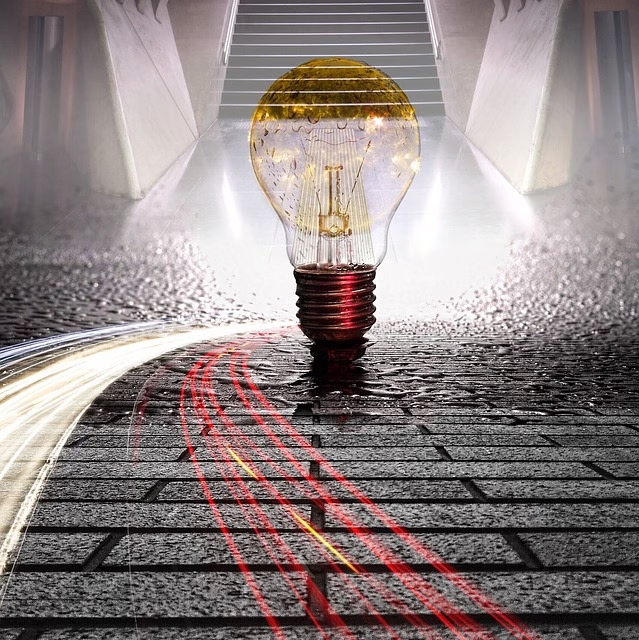Travel is no longer just about packing your bags and heading off to explore new destinations. In today’s tech-savvy world, the role of Artificial Intelligence (AI) and Machine Learning (ML) in shaping our travel experiences has become monumental. No longer constrained to searching for flights or booking hotels, these technologies have elevated how we plan, execute, and even enjoy our trips. From predictive travel planning tools to real-time language translation, AI and ML are making travel smarter, smoother, and much more personalised for the modern traveller.
In this article, we’ll dive deep into how AI and ML tools are transforming the travel landscape. Whether you’re a globetrotter or a travel newbie, you’ll learn about the latest tools that can enhance your travel experience, actionable tips to make the most of them, and why partnering with services like Nihosi Travels makes technology-enabled travel even simpler.
How AI and ML Are Revolutionising Travel
AI and ML have seeped into every facet of travel, from offering better travel recommendations to ensuring seamless on-the-ground experiences. Here’s a quick overview of how this tech is changing the travel game:
-
Personalisation at Its Best
Machine learning algorithms analyse data from your past travel behaviours—like past bookings, search queries, and even browsing history—to suggest personalised options. For instance, platforms such as Skyscanner or Hopper predict the best times to book flights by analysing years of data and trends. -
Streamlining Planning Processes
Gone are the days of browsing dozens of websites for the best travel deals. AI-based platforms like Google Travel consolidate your itineraries, suggest top places based on interests, and even predict weather patterns for your travel dates. -
Real-Time Problem Solvers
Missed a connecting flight? Lost your luggage? No problem. AI-powered chatbots integrated with airlines, travel platforms, and even independent apps can provide instant answers and sometimes even resolve your issues for you. -
Language Translation and Accessibility
Language barriers are one of the biggest challenges when travelling abroad. Tools like Google Translate and AI-powered devices such as Pocketalk have transformed the way we communicate, offering accurate, real-time translations. - Cost Efficiency
From identifying cost-effective travel routes to providing stress-free currency exchange solutions, AI algorithms optimise your financial planning during trips. While services like Hopper predict airfares, platforms like Revolut provide real-time benefits for travellers managing currencies.
AI-Powered Tools That Are Changing the Way We Travel
1. Smart Travel Assistants
Think of AI travel assistants as your personal travel planners. These apps and tools do everything from finding flights to suggesting exciting itineraries. Here are some highlights:
- Google Travel: Combines all your travel bookings in one place. Its AI assistant suggests restaurants, tourist attractions, and even local events tailored to your preferences.
- TripIt: Machine learning powers this packing and itinerary organiser, which keeps your plans streamlined while adjusting recommendations based on your changes.
How to Use: Simply forward your booking confirmations to these platforms, and they’ll create detailed itineraries effortlessly—perfect for travellers who struggle with organisation.
2. Smarter Navigation with AI
Getting lost during travel can seem romantic until you find yourself stranded. AI-based navigation tools like Google Maps now do far more than simple location-based directions.
- Predict travel time variability using historical and real-time data.
- Offer recommendations for transportation modes (public transit, walking, biking) specific to the city’s infrastructure.
- Crowd-sourced local insights such as closed streets, transportation delays, or localised safety advisories.
For adventurous hikers, augmented-reality-enabled navigation apps (like Mapillary) overlay directions directly onto environmental visuals, making it easier to trek through off-road destinations.
3. Language Translation Apps
Language can feel like a barrier when visiting a foreign country, but AI has virtually dissolved these walls.
- Google Translate: Powered by Google’s neural machine translation, this tool provides near-human accuracy for over 133 languages.
- iTranslate Voice and Pocketalk: Made for conversations, these tools allow you to talk into a microphone and immediately hear the translation in the chosen language.
- Deepl Translator: Renowned for its contextual translation accuracy, ensured even in languages with intricate syntax.
4. Predictive Booking Apps
One of the most stressful parts of travel planning is not knowing the best time to book your flights or hotels. That’s where predictive booking platforms step in.
- Hopper: Assesses millions of records to predict whether flights and hotel rates are expected to rise or drop—days, weeks, or even months ahead.
- Kayak’s Explore Feature: Allows budget-conscious travellers to find last-minute, cost-effective flights while tapping into AI to predict future pricing trends.
5. AI-Powered Customer Service Tools
AI chatbots are gaining popularity in the travel industry for providing round-the-clock support.
- Amadeus AI Chatbots: These can guide users through complex queries instantaneously, offering solutions on lost baggage, itinerary adjustments, or hotel disputes.
- Many airlines, including Emirates and British Airways, have integrated AI chatbots to ease customer interactions.
Pro Tip: While these bots can swiftly resolve most standard issues, human agents are still available for more complex concerns.
Immersive Experiences: Virtual Reality and Augmented Reality in Travel
Virtual Reality (VR) and Augmented Reality (AR) might seem futuristic, but they’ve started reshaping travel planning itself. These technologies cater to the increasing demand for “try-before-you-buy” experiences and on-site convenience.
-
Virtual Hotel Tours: Using VR, travellers can now virtually “walk through” hotel rooms or cruise packages. Marriott Hotels, for example, has incorporated VR-enabled travel previews into their booking platforms.
- Digital Sightseeing Enhancements: Apps like AR City by Blippar or Google Lens can layer historical data or guide tips over a live camera view to help you explore famous landmarks with deeper, interactive experiences.
How Nihosi Travels Harnesses Technology
Your journey into smart travel is best guided by experts who know both tech and the industry. With Nihosi Travels, tech-enabled travel planning becomes easy, time-efficient, and accurate.
At Nihosi Travels, we provide:
- Fully customised AI-enhanced itineraries based on your interests and budget.
- Real-time travel assistance and support through our advanced chatbot integration on our website.
- Smart solutions for last-minute bookings by optimising ML tools to locate deals personalised to you.
Thanks to AI, we’re not just travel planners; we’re partners who ensure your experience is utterly stress-free.
Future Trends: What’s Next for AI in Travel?
- Fully AI-Powered Holidays: Imagine fully automated vacations, where AI tools predict your preferences and plan your trip—all while sending updates in real time.
- Emotion-Tracking AI: Personalised itineraries could soon be informed by sensors that adapt your travel schedule based on mood and energy levels.
- Hyper-Personalisation in Hotel Experiences: Tools like room allocation based on your temperature preferences or robots tailoring room services to suit your diet.
- Green Travel Algorithms: AI-driven travel platforms are being trained to optimise for eco-friendly options—calculating CO2 footprints and favouring sustainable alternatives.
FAQs: All About AI and Travel
How does AI make travel smarter?
AI simplifies the process of travel planning and execution by tailoring services to your preferences. With predictive tools, you can find cost-effective flights, book accommodations hassle-free, and even communicate in foreign languages.
What are some must-have apps for tech-savvy travellers in 2025?
Expect apps like Google Travel, TripIt, Hopper, Pocketalk, and Airbnb to dominate due to their innovative AI-enhanced features.
Is AI in travel accessible for budget travellers?
Absolutely! AI not only predicts the least expensive periods to travel but also curates money-saving itineraries. Budget travellers benefit significantly from smart apps like Hopper or Skyscanner, which optimise costs.
AI and ML aren’t just enhancing travel—they’re transforming it. Whether it’s through personalisation, predictive savings, or augmented on-ground experiences, the modern traveller has far more tools at their disposal today than ever before. With travel agencies like Nihosi Travels committed to integrating cutting-edge technology, navigating the complexities of travel has never been easier. Ready to explore? Let technology guide you to your next incredible adventure.












Subscribe To Our Newsletter
Join our mailing list to receive the latest news and updates from our team.
You have Successfully Subscribed!